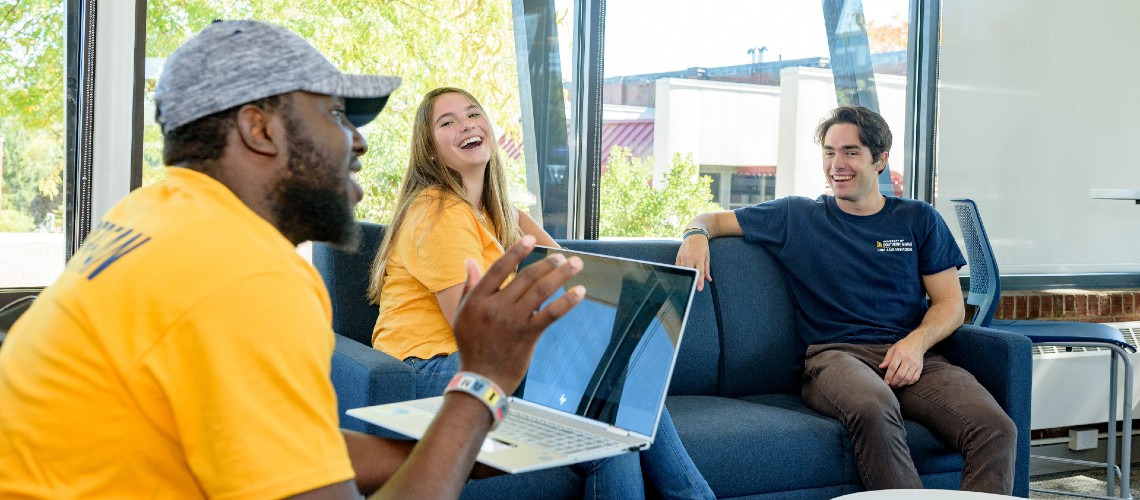UROP 2025: July 10 update
We have nearly exhausted funding for non-STEM projects (arts, humanities, and some social sciences). Proposals for Student-Faculty projects will continue to be reviewed and awarded through July 31, 2025 as funds allow. However, before applying, please contact Bruce Thompson (rbthompson@maine.edu) to confirm funding availability for your project area.
The Undergraduate Research Opportunities Program (UROP) awards scholarly fellowships that enable students to design and conduct their own research projects in collaboration with a faculty member.
The program brings together diverse areas of undergraduate student research and creative activities across all academic disciplines while fostering student-faculty collaboration.
UROP Fellowship Benefits
- Receive funding for your research or creative activity idea:
- Stipend: $3,000
- Supplies and Materials: $500
- Travel: $400
- Professional development: Design and implement a formal research or creative activity project; develop your career skills through written and oral communication; network with faculty, peers, and the business community.
- Connect with professors: At the core of the fellowship is your work with a professor who inspires and mentors you.
- Meet like-minded peers outside your major: Throughout the program, you’ll attend monthly luncheon meetings with other students who are also pursuing UROP projects.
- Gain valuable experience: You’ll learn how to submit a formal proposal, create a project budget, and manage project logistics, as well as data management techniques.
- Present your research: You’ll deliver a presentation at the University’s annual Thinking Matters conference, our student research symposium.
- Travel and networking: UROP fellows often participate in regional, national, and international meetings and conferences within their respective disciplines.
Eligibility
UROP is open to all undergraduate students at the University who meet the following qualifications:
- Fellowships will be awarded to students who are studying in their third or fourth year.
- You can apply as early as the Spring semester of your second year, and begin your research project at the beginning of your third year.
- Enrolled in at least 6 credit hours.
- Have a GPA of 2.5 or greater.
- Have connected with a faculty mentor to collaborate on a research project.
The Fellowship Award
Students who receive a UROP Fellowship will be awarded a budget of:
- $3,000 stipend
- These funds can be used as you see fit, based on your project proposal.
- $500 for supplies and materials
- This includes any equipment needed to conduct your research.
- $400 for travel
- Travel funds can be used for any training you’ll need, as well as traveling to meetings or conferences to present your work.
Planning for Your Fellowship
Project Timeline
The UROP fellowships are granted for one full academic year, starting in the fall. However, many students opt to begin their work during the summer, due to seasonal factors for data collection and travel opportunities.
May—July:
- Applications are reviewed beginning the first week of May. Because of the closing of the University’s campuses due to Covid-19, many students and faculty were unable to meet and talk about ideas for developing a proposal. Therefore, this year we are going to be accepting proposals, as long as funds are available, until July 31.
- Awards are announced.
June—August:
- New UROP awardees may elect to begin their project and use the expense budget for travel, materials, and supplies. The stipend funding, however, will not be awarded until September 1.
September:
- The UROP programming officially begins!
- Required monthly luncheon meetings begin, where you’ll find:
- Group discussions about how your research is progressing — what’s working well, and any challenges you’re facing
- Administrative support for your project
- Practice presentations for the Annual Research Symposium and Thinking Matters, as well as any upcoming meetings or conferences you may be attending
March:
- You’ll have an opportunity to present your research process, experience, and findings at the UROP Poster Symposium.
April:
- You’ll have an opportunity to present at Thinking Matters, the University’s annual student research symposium, where both undergraduate and graduate students present research posters and dynamic lighting talks.
How to Apply
Frequently Asked Questions
If you don’t see an answer to your question below, please contact R. Bruce Thompson, Director of UROP.
Research Project Topics
Eligibility
Project Timeline & Time Commitment
Application
Project Budget
The UROP fellowships are granted for one full academic year, starting in the fall. However, many students opt to begin their work during the summer, due to seasonal factors for data collection and travel opportunities.


